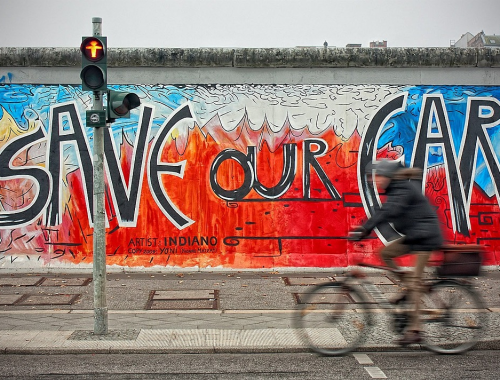
Moving to France: A Step-by-Step Guide with 21st Century Relocations
Relocating to France is more than just a move—it’s an adventure filled with opportunities to embrace world-class culture, cuisine, and a sophisticated lifestyle. As one of Europe’s most popular destinations for expats, France offers a harmonious blend of history, modernity, and diversity. At 21st Century Relocations, we’ve made it our mission to simplify your journey. Here’s a comprehensive guide to make your transition to France seamless and exciting.
Why Move to France?
A Land of Diversity
France is celebrated for its regional diversity. From Bordeaux’s vineyards to Provence’s lavender fields, each part of the country offers unique experiences. The bustling streets of Paris contrast beautifully with the serene beaches of the French Riviera, ensuring there’s something for everyone.
Top-Notch Healthcare
The French healthcare system is among the best globally, offering affordable and high-quality medical services. Expats can access universal healthcare once they’ve settled, ensuring peace of mind for individuals and families alike.
Cultural Richness
France is synonymous with art, fashion, and gastronomy. Living here means immersing yourself in a culture that values creativity and excellence. Whether it’s visiting the Louvre, enjoying Michelin-starred cuisine, or attending local festivals, life in France is anything but ordinary.
Strong Economy and Education
France’s stable economy and exceptional educational institutions make it an attractive destination for professionals and families. From international schools to renowned universities, your family’s future is secure in France.
Key Things to Consider Before Moving to France
A. Legal Requirements
Visas and Residency
Moving to France requires understanding its visa and residency policies, which differ for EU/EEA citizens and those from outside the EU.
- For EU/EEA Nationals: Citizens of the EU, EEA, or Switzerland can move to France without a visa or work permit. However, they must register at their local town hall (Mairie) if they intend to stay long-term.
- For Non-EU Citizens: Non-EU nationals need to secure a visa before arriving in France. The type of visa depends on your reason for moving:
- Long-Stay Visa (VLS-TS): Ideal for individuals planning to stay for more than 90 days, whether for work, study, or family reunification.
- Work Visas: Specific to professionals, these include employer-sponsored visas or the “Passeport Talent” visa for highly skilled workers, artists, or entrepreneurs. Freelancers can explore the “auto-entrepreneur” framework under this visa.
Once in France, all long-term visa holders must validate their visa through the French Office of Immigration and Integration (OFII) within three months.
Work Permits
For those moving to France for employment:
- Your employer typically applies for a work permit as part of the visa process.
- Freelancers or remote workers need to apply for a self-employment visa or register under the appropriate tax status.
- Be aware of labour laws, such as working hours and paid leave, which are highly regulated in France.
Carte de Séjour
After one year in France, many expats must apply for a Carte de Séjour, a residence permit allowing them to stay beyond their initial visa validity. The application process involves providing proof of income, accommodation, and health insurance. Some categories of residents, such as students or retirees, may need to fulfil specific conditions.
B. Finding a Home
The French Property Market
The housing market in France is competitive, particularly in major cities like Paris, Lyon, and Marseille. Properties in these urban centres are often expensive, but they provide access to better amenities, public transport, and job opportunities. Conversely, smaller cities such as Annecy, Bordeaux, or Nantes offer a more relaxed lifestyle and affordable housing options without compromising on quality of life.
To navigate the housing market:
- Start early and research thoroughly.
- Use reputable real estate websites like SeLoger, Pap.fr, or Le Bon Coin.
- Consider hiring a local estate agent to assist with finding properties and understanding local market practices.
Renting vs Buying
For expats, renting is usually the best choice initially:
- Expect to pay a security deposit (caution) equivalent to one or two months’ rent.
- Most landlords require a guarantor (garant) who resides in France or proof of income to ensure your ability to pay rent.
- Rental agreements, or bail, typically last for one to three years, with automatic renewals unless terminated.
Buying a home may be a long-term consideration. Mortgage rates in France are competitive, but the process can be lengthy and requires a good understanding of French legal and banking systems.
Utilities and Set-Up
After securing accommodation, setting up utilities is the next step:
- Electricity and Gas: The main providers are EDF and Engie, but alternatives like TotalEnergies offer competitive rates. Electricity in France operates on a 230V supply with a Type C or E plug.
- Water: Municipalities manage water supply. Contact your local town hall (Mairie) for service initiation.
- Internet and Phone Services: Providers like Orange, Bouygues Telecom, and SFR dominate the market. Fibre-optic connections are available in most urban areas.
Keep in mind:
- Utility contracts often require a RIB (Relevé d’Identité Bancaire), which is proof of a French bank account.
- French customer service may operate exclusively in French, so basic language skills or translation assistance can be helpful.
Living in France: Tips for a Smooth Transition
Learn the Language
While many French people speak English, especially in urban areas, learning French will help you integrate faster. Enrol in language courses or use apps like Duolingo to get started.
Understand the Tax System
France’s tax system can be complex, so consult a local accountant to understand your obligations. Be aware of income tax, property tax, and social contributions.
Healthcare Registration
Expats must register with the local health authority and secure a Carte Vitale, the health insurance card. Private health insurance is recommended for additional coverage.
Cost of Living
France’s cost of living varies greatly. Paris is expensive, while smaller cities offer more affordable options. Budget for essentials like groceries, transportation, and leisure activities.
What Makes 21st Century Relocations Different?
At 21st Century Relocations, we understand that each move is unique. Whether it’s fragile heirlooms or bulky furniture, we use high-quality materials to ensure everything arrives safely.
- Tailored Services: Every client receives a customised relocation plan, ensuring no detail is overlooked.
- Expert Guidance: Our team is experienced in navigating French bureaucracy and customs processes.
- Transparent Pricing: No hidden fees—just clear, honest quotes.
- Comprehensive Support: From packing to unpacking, we’re with you every step of the way.
FAQs About Moving to France
Do I need a visa to move to France?
Yes, unless you’re an EU/EEA citizen. Contact us for assistance in securing the right visa for your needs.
Can I bring my pets?
Absolutely! France has pet-friendly policies, but ensure vaccinations and microchips are up-to-date.
How do I enrol my child in school?
Public schools in France are free, but many expats prefer international schools. Contact schools early to secure a spot.
What’s the best way to ship my belongings?
With 21st Century Relocations, you can choose air or sea freight depending on your timeline and budget.
Moving to France Without a Worry!
Moving to France is a life-changing experience, and 21st Century Relocations is here to make it as smooth as possible. From the first consultation to your final move-in day, our team ensures you start this new chapter stress-free.
Ready to take the leap? Contact us today for a free quote and personalised relocation plan. Let’s make your dream of living in France a reality.
You May Also Like

Moving to Sydney? Here are the Pros and Cons
March 24, 2021
Moving to Berlin? Read This List Of Pros And Cons First
October 31, 2022


